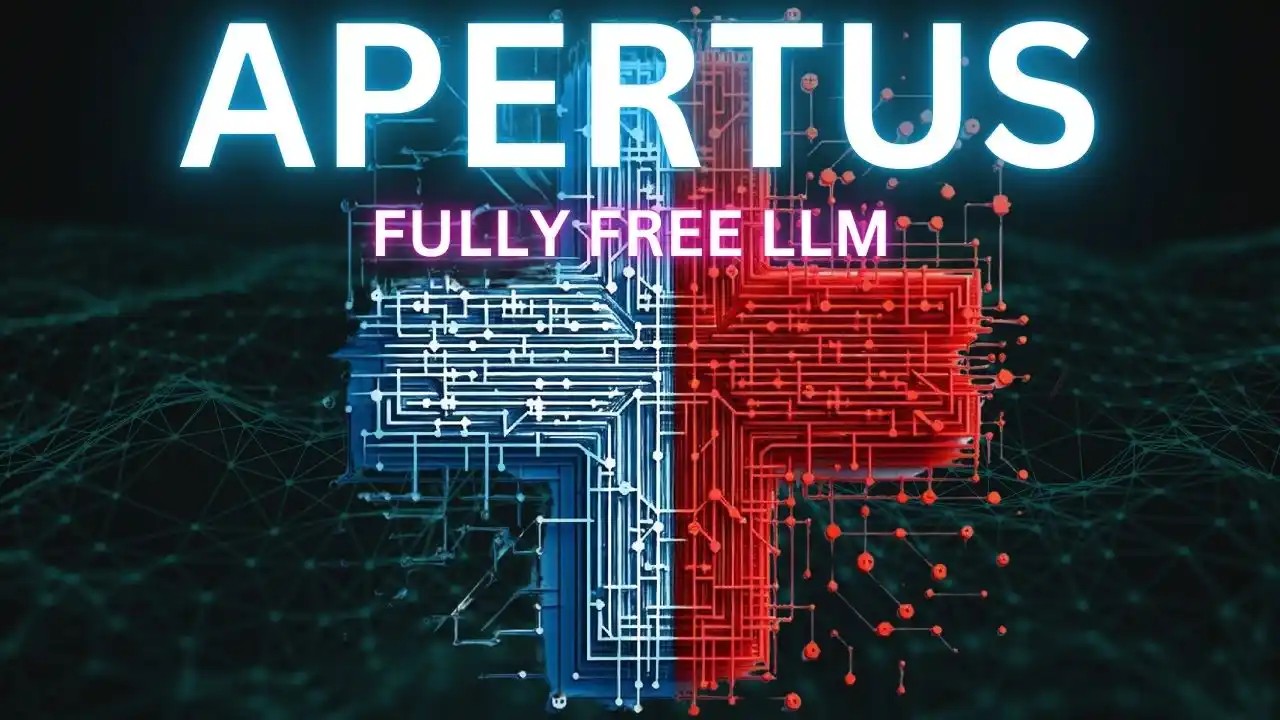
SpecialtyNetworkSllc – Switzerland has entered a new era in artificial intelligence. EPFL, ETH Zurich, and the Swiss National Supercomputing Centre (CSCS) have introduced Apertus, a fully open AI model for research, education, and industry. The name comes from Latin, meaning “open,” and reflects its mission of transparency, accessibility, and inclusivity.
Unlike many AI systems that share only partial details, Apertus is completely open-source. Its architecture, training data, and documentation are fully available. This gives developers, researchers, and organizations the ability to inspect, test, and expand the model.
The team offers two versions: an 8-billion-parameter model and a 70-billion-parameter model. Both carry a permissive license, making them usable for research, education, and commercial projects. You can download Apertus from Hugging Face or access it through Swisscom, a strategic partner.
Martin Jaggi, Professor of Machine Learning at EPFL, said, “With this release, we show how to build a trustworthy, sovereign, and inclusive AI model.” He added that engineers and researchers at CSCS, ETH Zurich, and EPFL will update Apertus regularly.
“Read More : Lisbon Tram Derails, 15 Dead and 18 Injured”
Thomas Schulthess, Director of CSCS, called Apertus “a driver of innovation” and a way to strengthen AI expertise across academia, society, and industry. He emphasized that Apertus is not just another research-to-product pipeline. Instead, it serves as public infrastructure for long-term use.
Swisscom has already integrated Apertus into its sovereign AI platform, which supports digital independence and responsible AI. Business clients can start using it now, and international users can access it through the Public AI Inference Utility.
“Read More : Hexstrike-AI: When Cybersecurity Tools Turn Into Hacking Weapons”
Apertus stands out for its multilingual training. The team trained it on 15 trillion tokens in more than 1,000 languages, with 40% of the dataset in non-English sources. The model even includes underrepresented languages such as Swiss German and Romansh.
Imanol Schlag, technical lead at ETH Zurich, explained, “Apertus is one of the few fully open large language models at this scale. It is the first to embed multilingualism, transparency, and compliance as core design principles.”
Downloading Apertus is straightforward, but using it requires servers, cloud resources, or interfaces. Developers can test it during Swiss {ai} Weeks, which run until October 5, 2025. Hackathon participants will access it through Swisscom-hosted interfaces.
Meanwhile, the Public AI Inference Utility offers global access. Its lead maintainer, Joshua Tan, described Apertus as “proof that AI can serve as public infrastructure, like highways, water, or electricity.”
The Apertus team built the model with strict compliance standards. They released training data, model weights, and checkpoints under the open-source license. The dataset included only publicly available content, filtered to remove personal data and respect opt-out requests.
The training process also followed Swiss data protection rules, Swiss copyright law, and EU AI Act requirements.
Antoine Bosselut, Professor at EPFL and Co-Lead of the Swiss AI Initiative, said Apertus is “the beginning of a journey, not the final step.” The team plans to expand the model family, improve efficiency, and design domain-specific tools for health, law, climate, and education.
By combining openness, multilingual support, and transparency, Apertus positions Switzerland as a leader in trustworthy and sovereign AI. Built by public institutions, it stands as infrastructure for the public good worldwide.